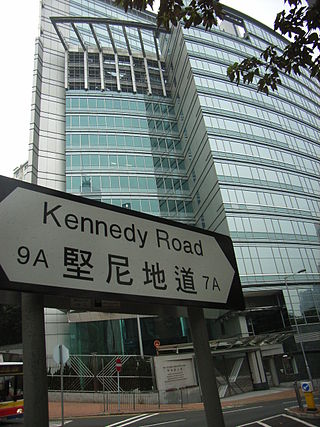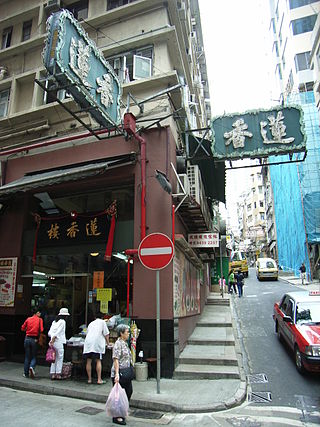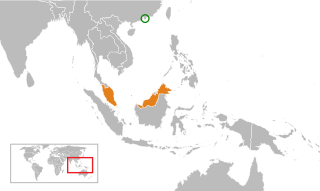This article needs additional citations for verification .(November 2021) |
Vietnamese businesses in Hong Kong are mainly run by Vietnamese, Chinese-Vietnamese and Overseas-Vietnamese coming to Hong Kong in different periods of time.
This article needs additional citations for verification .(November 2021) |
Vietnamese businesses in Hong Kong are mainly run by Vietnamese, Chinese-Vietnamese and Overseas-Vietnamese coming to Hong Kong in different periods of time.
From 1977 to 1985, hundreds of thousands of Vietnamese people left Vietnam by wooden boats to other countries including Hong Kong to seek refuge in an escape of the persecution or forced re-education camp in Vietnam. Among the people leaving Vietnam, around half of them, being white-collar worker, represented a wide range of backgrounds which included urban and rural residents, and Chinese-Vietnamese. [1] Starting from 1985 onwards, Chinese-Vietnamese, Amerasian and other rural and less-educated Vietnamese were released from re-education camps.
With the joint policy statement signed by the Securities & Futures Commission and the Hong Kong Exchanges and Clearing Ltd. on 7 March 2007, Professor KC Chan, Secretary for Financial Services & the Treasury of the HKSAR, encouraged Vietnamese enterprises to invest in Hong Kong in a conference held in Vietnam on 22 November 2007. [2] [3]
Vietnamese people and citizens of some other countries, like Afghanistan and Nepal etc., who want to stay longer than the allowed free visa period to run a business in Hong Kong, are excluded under the General Employment Policy of the Immigration Guidelines of the Immigration Department. [4]
On March 17, 2010, in response to a question concerning the immigration policy on Vietnamese people by Chan Kam-lam, a member of the Legislative Council of Hong Kong, Ambrose Lee Siu-kwong, the Secretary for Security of the HKSAR, once replied that such policy, as applied to the Vietnamese, was subject to the overall assessment of the country and the citizens, potential risks associated with the nationals and the overall security of Hong Kong for instance. [5]
On 16 December 2008, the Hong Kong / Vietnam Comprehensive Double Taxation Agreement (CDTA) was signed by John Tsang Chun-wah, the Financial Secretary of the HKSAR, and Do Hoang Anh Tuan, Vice-Minister of Finance of Vietnam, in Hanoi.[ citation needed ]
Spokesman for the Hong Kong Government said such agreement would bring tax savings for both Vietnam and Hong Kong investors if they involve in bilateral trade and investment businesses.
Following the CDTA, the Order, which was made by the Chief Executive Council to implement the Avoidance of Double Taxation Agreement with Vietnam, was gazetted in Hong Kong on 30 April 2009. The order was then taken to be tabled in the Legislative Council of Hong Kong on 6 May 2009. [6]
Catering
Distribution of Vietnamese Restaurant in Hong Kong (as of December 2010): [7]
| Region | Search Result | In operation |
|---|---|---|
| Hong Kong Island | 126 | 75 |
| Kowloon | 131 | 82 |
| New Territories | 74 | 57 |
| Lantau Island | 5 | 5 |
| total | 336 | 219 |
Owner of Vietnamese Restaurant in Hong Kong (as of December 2010): Origin
| Region | Vietnamese | Vietnamese Chinese | Hongkonger | Contacted |
|---|---|---|---|---|
| Hong Kong Island | 1 | 2 | 10 | 13 |
| Kowloon | 5 | 4 | 8 | 17 |
| New Territories | 1 | 1 | 14 | 16 |
| Lantau Island | / | / | / | / |
| total | 7 | 7 | 32 | 46 |
Given inadequate research of the Vietnamese people in the territory either by academic researchers or policy researchers, few examples can be quoted and the cases presented below are, therefore, all primary resources obtained through direct interviews carried out in November 2010, with three corresponding owners of the businesses.
Three informants were born and bred in Vietnam. Liu, one of the informants, is Chinese-Vietnamese; Annie and Michelle, the other two, are Vietnamese. Neither their mother tongue nor second language is Cantonese. They learned to speak Cantonese after they came to Hong Kong, and now they are able to master Cantonese fluently.
All of them established their business by using their savings. Lui and his wife, for instance, who have been selling authentic Vietnamese food for thirteen years, invested HK$648,300, which partially came from the couple’s savings while the rest from the brothers and sisters met in the church, in the restaurant which monthly profit varies from HK$3,000 to HK$10,000. [8]
They engage in catering services, selling Vietnamese style food, such as Spring Roll while the business scale is small. Owning a restaurant in Hung Hom and Yuen Long respectively, Lui and Annie mainly serve the residents around. Michelle and her cousin, on the other hand, ran a snack shop in Tai Kok Tsui which opening hour was from 7am to 6pm and served the white-collar nearby.
While running the business they are not generally intended to attract Vietnamese in Hong Kong. Tastes of food are adjusted as they believe that Hong Kong customers do not adapt to heavy flavored food. Cost is an important consideration while running the business. Most of the ingredients are bought from local market. Michelle bought seasonings from Chinese herb shops and Thai seasoning stores. They also import spices from Vietnam that cannot be found in Hong Kong but are vital for the dishes.

Hong Kong is a special administrative region of China. With 7.4 million residents of various nationalities in a 1,104-square-kilometre (426 sq mi) territory, Hong Kong is the fourth most densely populated region in the world.

The politics of Hong Kong takes place in a framework of a political system dominated by its quasi-constitutional document, the Hong Kong Basic Law, its own legislature, the Chief Executive as the head of government and of the Special Administrative Region and of a politically constrained multi-party presidential system. The Government of the Hong Kong Special Administrative Region of the People's Republic of China is led by the Chief Executive, the head of government.

Under the Basic Law, the Hong Kong Special Administrative Region is exclusively in charge of its internal affairs, whilst the central government of China is responsible for its foreign affairs and defence. As a separate customs territory, Hong Kong maintains and develops relations with foreign states and regions, and plays an active role in such international organisations as World Trade Organization (WTO) and the Asia-Pacific Economic Cooperation (APEC) in its own right under the name of Hong Kong, China. Hong Kong participates in 16 projects of United Nations Sustainable Development Goals.

The Government of the Hong Kong Special Administrative Region is the executive authorities of Hong Kong. It was established on 1 July 1997, following the handover of Hong Kong.

Hong Kong cuisine is mainly influenced by Cantonese cuisine, European cuisines and non-Cantonese Chinese cuisines, as well as Japanese, Korean and Southeast Asian cuisines, due to Hong Kong's past as a British colony and a long history of being an international port of commerce. Complex combinations and international gourmet expertise have given Hong Kong the labels of "Gourmet Paradise" and "World's Fair of Food".

The Hong Kong Special Administrative Region passport is a passport issued only to permanent residents of Hong Kong who also hold Chinese citizenship. In accordance with the Basic Law of the Hong Kong Special Administrative Region, since the handover in 1997, the passport has been issued by the Immigration Department of the Government of Hong Kong under the authorisation of the Central People's Government of the People's Republic of China. As the official languages of Hong Kong are Chinese and English, the passport is printed bilingually in both Chinese and English. In addition, unlike Chinese passport which can be directly issued by Chinese diplomatic missions abroad, the Immigration Department of Hong Kong is the only issuing authority for HKSAR passports.

During the British colonial era, English was the sole official language until 1978. Today, the Basic Law of Hong Kong states that English and Chinese are the two official languages of Hong Kong. All roads and government signs are bilingual, and both languages are used in academia, business and the courts, as well as in most government materials today.

Bat lau dung laai is a Hong Kong Cantonese corruption of the Vietnamese phrase bắt đầu từ nay, meaning "from now on".
Many of the Vietnamese people in Hong Kong immigrated as a result of the Vietnam War and persecution since the mid-1970s.

The Hong Kong identity card is an official identity document issued by the Immigration Department of Hong Kong. According to the Registration of Persons Ordinance, all residents of age 11 or above who are living in Hong Kong for longer than 180 days must, within 30 days of either reaching the age of 11 or arriving in Hong Kong, register for an HKID. HKIDs contain amongst others the name of the bearer in English, and if applicable in Chinese. The HKID does not expire for the duration of residency in Hong Kong.

The visa policy of Hong Kong deals with the requirements in which a foreign national wishing to enter Hong Kong through one of the 15 immigration control points must meet to obtain an entry permit or Visa, which depending on the traveller's nationality, may be required to travel to, enter, and remain in the Hong Kong Special Administrative Region. Visitors from over 145 countries are permitted without Visa entry for periods ranging from 7 to 180 days, to the Hong Kong Special Administrative Region for tourism or certain business-related activities. All visitors must hold a passport valid for more than 1 month.

The Hong Kong Shipping Register was set up in 1990 under the Hong Kong Merchant Shipping (Registration) Ordinance, administered by the Marine Department. Since the transfer of sovereignty by the United Kingdom in 1997, Hong Kong is authorised under the Basic Law by the Government of the People’s Republic of China, using the name “Hong Kong, China” to maintain a separate ship registration system.
Mainland Chinese or mainlanders are Chinese people who live in or have recently emigrated from mainland China, defined as the territory governed by the People's Republic of China (PRC) except for Hong Kong, Macau, and the partly-PRC-controlled South China Sea Islands, and also excluding certain territories that are claimed by the PRC but not controlled, namely Taiwan a.k.a. the "Republic of China" (ROC), which is a state with limited recognition, and other associated territories that are ruled by Taiwan. The term also refers to historical groups of people of Chinese origin who immigrated to Hong Kong, Macau and Taiwan during the 20th century, especially in the context of specific historical events.
Hong Kong Americans, include Americans who are also Hong Kong residents who identify themselves as Hong Kongers, Americans of Hong Kong ancestry, and also Americans who have Hong Kong parents.

Hong Kong–Malaysia relations refers to bilateral diplomatic relations between Hong Kong and Malaysia.

The Chinese Canadian community in the Greater Toronto Area was first established around 1877, with an initial population of two laundry owners. While the Chinese Canadian population was initially small in size, it dramatically grew beginning in the late 1960s due to changes in immigration law and political issues in Hong Kong. Additional immigration from Southeast Asia in the aftermath of the Vietnam War and related conflicts and a late 20th century wave of Hong Kong immigration led to the further development of Chinese ethnic enclaves in the Greater Toronto Area. The Chinese established many large shopping centres in suburban areas catering to their ethnic group. There are 679,725 Chinese in the Greater Toronto Area as of the 2021 census, second only to New York City for largest Chinese community in North America.

Hong Kong–Qatar relations refers to bilateral foreign relations between Hong Kong and Qatar. While both Qatar and Hong Kong are geographically small and in separate regions of the Asian continent, the connections between the two have a long history.

Innovation, Technology and Industry Bureau (ITIB) is a policy bureau of the Government of Hong Kong. It is responsible for policy matters on the development of innovation and technology and information technology which are the key drivers in this endeavour. The Bureau is led by the Secretary for Innovation, Technology and Industry, currently Dong Sun.

The Committee for Safeguarding National Security of the Hong Kong Special Administrative Region is a national security committee established by the Government of Hong Kong under the Article 12 of the Hong Kong national security law. The committee is supervised and accountable to the Central People's Government of China.